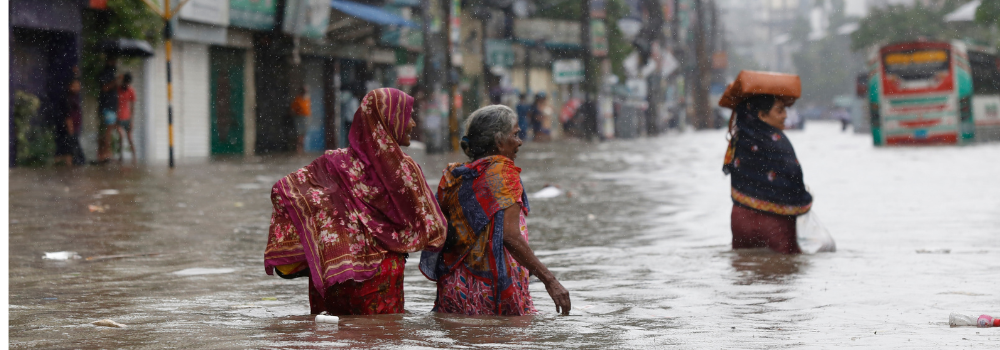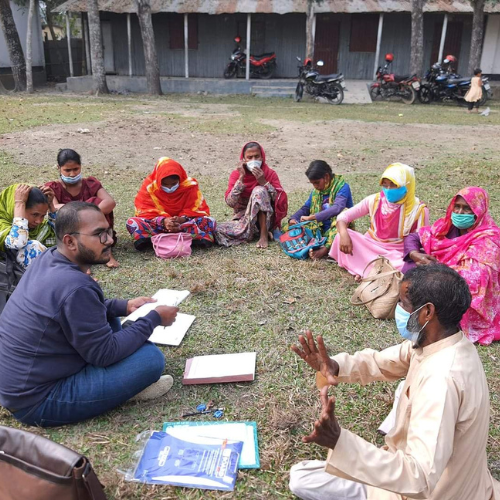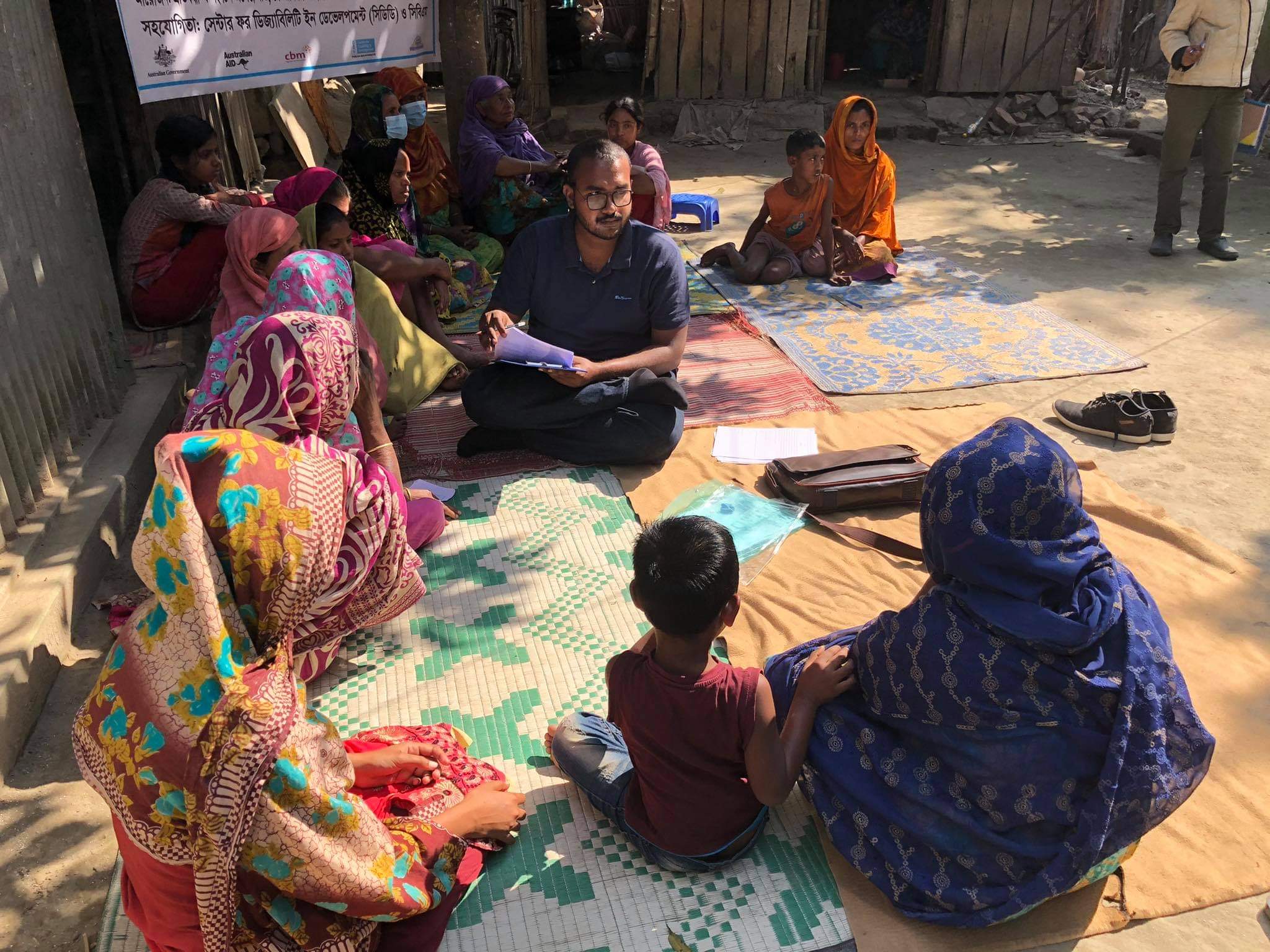
Women are walking through a flooded street after heavy monsoon rainfall in Dhaka, Bangladesh, on July 12, 2024. Photo by Rehman Asad via Shutterstock.
Musabber Ali Chisty, graduate research assistant at the Natural Hazards Center and PhD student in the University of Colorado Boulder Department of Sociology, has recently been awarded the CU Engage Graduate Fellowship in Community-Based Research to conduct research on women with disabilities in coastal communities in Bangladesh. He will launch this project during the 2025-26 academic year.
The proposed study will generate valuable insights about how overlapping identities influence evacuation behaviors, the use of storm shelters, and access to post-disaster humanitarian aid. Ultimately, this work is designed to reduce cyclone risk among socially vulnerable people.
Bangladesh ranks among the most disaster-prone countries in the world. Powerful cyclones, floods, and coastal erosion cause frequent devastation in the nation’s low-lying coastal regions, which Chisty experienced first-hand while growing up there.
 Chisty conducting field interviews in Bangladesh in 2019. Photo courtesy of Musabber Ali Chisty
Chisty conducting field interviews in Bangladesh in 2019. Photo courtesy of Musabber Ali Chisty
“My house would be underwater for two or three months every year during the monsoon season. And I used to think, 'How can break out of these conditions?’” Chisty said. “I’ve always wanted to do research that contributes to community development back home.”
In response to the many deadly and destructive disasters of the past, Bangladesh has made significant strides towards risk reduction, even with limited resources. In recent years, the death toll from extreme weather events like cyclones there has plummeted, thanks to the nation’s comprehensive, multi-layered early warning system. Experts have praised Bangladesh’s interventions as a model for how low-income countries can keep people safe, especially as climate change fuels more intense storms.
Chisty believes that well-resourced countries like the United States can learn from his home country’s success, but he said the system is not perfect. Many of the most vulnerable communities are still left behind. According to the Department of Social Welfare in Bangladesh, 622,906 persons with disabilities live in cyclone-prone coastal areas, and 231,455 among them are women. The population faces compounded vulnerability during disasters like cyclones, as gender and disability intersect to heighten risks and reduce survival resources.
Much of Chisty’s research seeks to mitigate that vulnerability. While pursuing his bachelor’s and master’s degrees in Bangladesh, he worked closed with the community-based nonprofit Center for Disability and Development on developing enhanced early warning systems for people with disabilities and creating policy frameworks to improve disability accessibility in disaster shelters.
“During those projects, I met women with disabilities in coastal Bangladesh who described evacuation warnings they couldn’t hear, shelters they couldn’t enter, and relief systems that rendered them invisible,” Chisty recalled. “I started learning from them as I listened to their stories, because they know best what help they need.”

Chisty while working with the Center for Disability and Development in 2019. Photo courtesy of Musabber Ali Chisty.
There is a persistent research gap when it comes to addressing gendered and other intersectional vulnerabilities in cyclone risk reduction activities. Chisty’s fellowship research seeks to fill some of those gaps by documenting the lived experience of women with disabilities, and ultimately co-designing solutions to make it easier for them to stay safe when cyclones hit. He’ll be partnering again with the Center for Disability and Development, which has been working with a large network of disabled people for nearly three decades.
Chisty said the CU Engage fellowship offers an exciting opportunity to enhance his doctoral studies. At the upcoming Community-Based Research summer institute, followed by bi-weekly seminars, Chisty and his fellowship cohort will learn to integrate community engagement and collaboration into their research practice. Chisty said it is an invaluable opportunity for him as a doctoral student who wants to pursue a career in public scholarship.
“I reject the traditional ‘ivory tower’ approach to research, which can sometimes treat communities as mere data sources or reduce complex lived experiences to statistics,” Chisty said. “It’s important to me that women with disabilities will be equal partners in this research. Because their expertise comes from survival.”